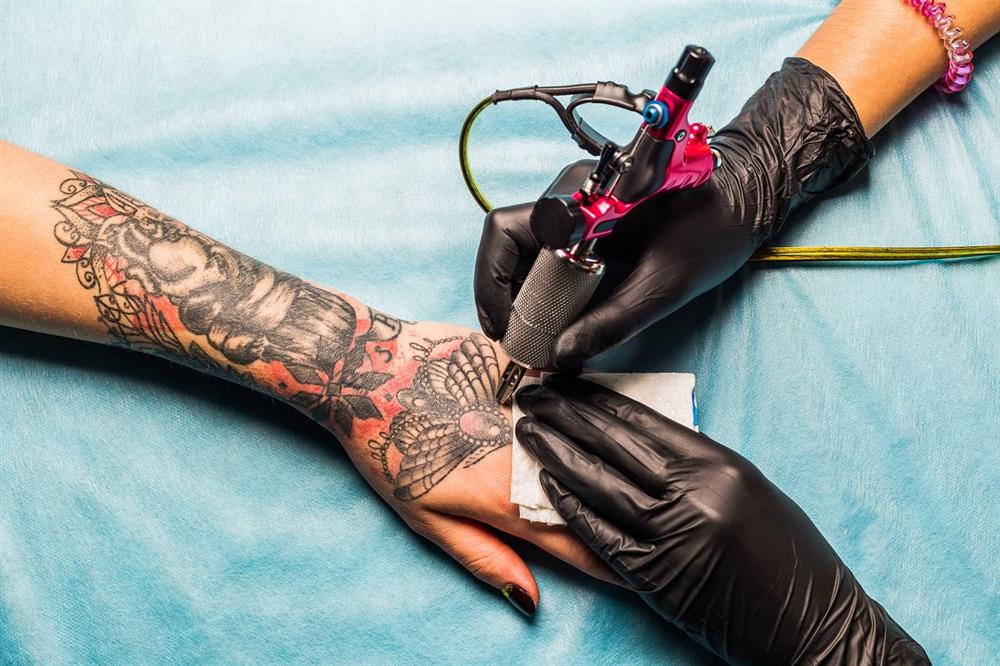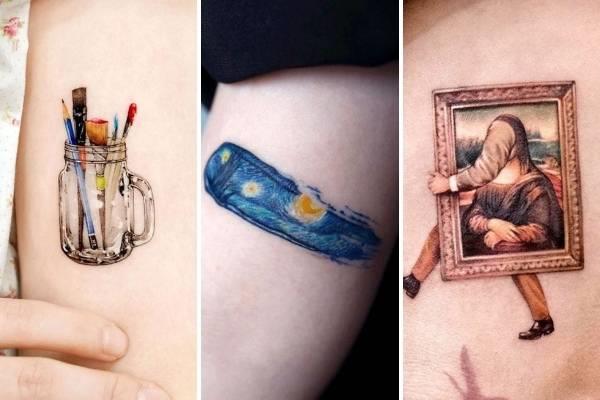Tattoos have been a part of human culture for thousands of years, with different societies and cultures using tattoos to signify various things. One such culture is Persian culture, which has a rich history of tattooing.
In Persian culture, tattoos were traditionally used to denote social status and identity. Wealthy individuals and members of royal families often had intricate tattoos that represented their status and power. These tattoos were typically placed on the hands, face, or other visible areas of the body, and were often ornate and highly detailed.

However, tattoos in Persian culture have also been used to signify more personal meanings. For example, some people may choose to get tattoos of their favorite Persian poetry or art as a way to express their cultural identity and pride. Others may get tattoos of meaningful symbols or quotes to represent important moments or beliefs in their lives.
In contrast to Persian culture, other countries and cultures have different perspectives on tattoos. In some cultures, tattoos are seen as taboo or even associated with criminal behavior. For example, in Japan, tattoos were traditionally associated with the Yakuza, a criminal organization. As a result, many Japanese people still view tattoos as a symbol of criminality, and they are often prohibited in public places like pools and gyms.
On the other hand, in Western cultures like the United States, tattoos have become much more mainstream and accepted. Many people get tattoos as a way to express their individuality or commemorate important moments in their lives. However, even in the US, there are still some social stigmas associated with tattoos, particularly in certain professions like law and finance.

Overall, while tattoos may have different meanings and cultural significance across different societies, one thing is clear: tattoos have been a part of human culture for thousands of years, and will continue to be a meaningful and enduring form of self-expression for people around the world.
Despite the differences in tattoo culture between countries, tattoos have become more popular and widely accepted around the world in recent years. With advancements in technology and the rise of social media, people are exposed to a wider range of tattoo styles and designs from different cultures, which has contributed to the growth of the tattoo industry.
However, it's important to note that while tattoos may be more accepted in certain cultures or societies, there are still some areas where they are frowned upon or even prohibited. For example, in some Middle Eastern countries, tattoos are considered a taboo and are associated with criminality or deviance. In other areas, tattoos may be seen as a violation of religious or cultural beliefs.
In some cases, tattoos may also be associated with negative stereotypes and discrimination. For example, in the United States, people with visible tattoos may face discrimination in the workplace or in other areas of their lives. Despite these challenges, many people choose to get tattoos as a form of self-expression and as a way to connect with their cultural heritage or personal beliefs.
When it comes to Persian tattoos specifically, there are many beautiful and intricate designs that are rooted in Persian culture and history. From calligraphy to geometric patterns to images of Persian art, there are endless possibilities for creating a unique and meaningful Persian tattoo.
Overall, while there may be differences in tattoo culture between countries and societies, the popularity of tattoos as a form of self-expression and art continues to grow around the world. Whether you choose to get a tattoo to honor your cultural heritage, express your individuality, or commemorate an important moment in your life, tattoos have the power to inspire and connect people across different cultures and borders.